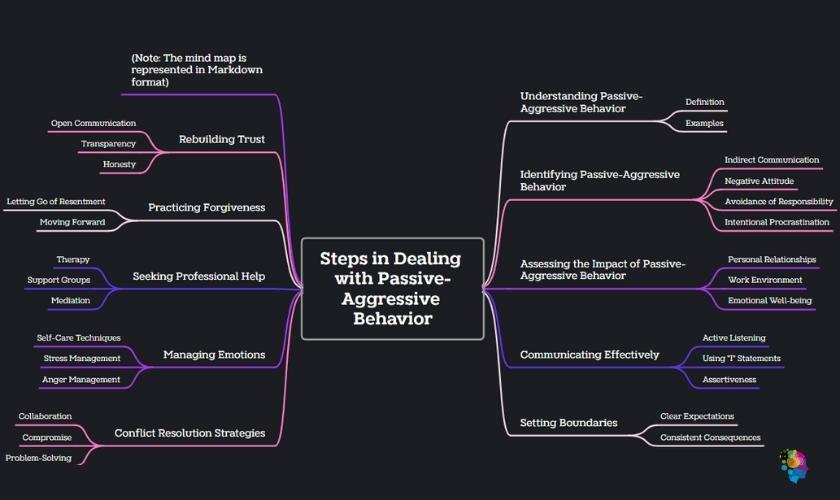How To Talk To Your Boss About Burnout
If you're wondering how to talk to your boss about burnout, especially when feeling overwhelmed by job stress, you're taking a crucial step. Job burnout, characterized by long hours, tight deadlines, and sometimes a lack of recognition, is a common issue.
While the idea of discussing work-related stress with your supervisor might seem daunting, it can be a constructive and beneficial conversation.
In this post, we'll guide you through effective ways to communicate with your boss. These tips are designed to help you address burnout and maintain a healthy balance in your work life.

Start by Recognizing What Burnout Is
It's important to recognize burnout – a prolonged response to prolonged stressors and stop being judgmental before recognizing it. This means that it doesn't just happen suddenly but builds up over time as our challenging tasks become more difficult, our unsafe working environments become more demanding, and our resources are depleted.
Knowing this will help you communicate with your boss from an informed standpoint and increase the chances of success for both parties.
Work Burnout is a state of emotional, physical, and mental exhaustion caused by excessive stress or pressure at work. It often results in helplessness and hopelessness when faced with job-related tasks. Some Common burnout signs that you may be experiencing burnout include:
- Low energy levels
- Lack of motivation or focus
- Feeling overwhelmed by the workload
- Difficulty sleeping [1]

Express How You Feel in a Professional Way
Once you have identified that you are experiencing burnout, it is important to express your feelings professionally. When speaking to your boss, focus on the facts and avoid negativity or blame. Be honest about your feelings and explain how your current workload is taking a toll on your energy levels and productivity. You can also provide suggestions for better ways to help manage the situation, such as delegating tasks, adjusting working hours, or reducing the project scope.

Be Respectful
It’s important to always be respectful and professional when speaking to your boss about burnout. Be mindful of their time constraints, stand up for yourself without being confrontational, and be open to any feedback they provide. Remember that your boss wants you to succeed as much as you do and is likely to be open to working together to find the best solution for everyone.

Take Care of Yourself
Your mental and emotional well-being should always come first, so make sure that you’re taking steps to manage your stress levels. This might include getting enough rest, exercising regularly, eating healthily, and taking some time to yourself each day. When you’re in a better place mentally and physically, you can address any issues with your boss and work through them.

Be Prepared
Before speaking with your boss about burnout, clearly understand what you want to say. How do you feel? How is it affecting your work? How can you and your boss work together to combat it? Having this all laid out in advance will help ensure that the conversation runs smoothly and efficiently.

Set A Right Time To Meet With Your Boss
Once you have identified the problem, set aside time to meet with your boss and let them know what's happening. Make sure you come prepared:
- Write down some ideas for possible solutions, such as reducing work hours or taking on less complicated tasks.
- Suggest breaks throughout the day.
- Provide evidence of how burnout out affects productivity, or offer alternative solutions if available.
Most bosses will appreciate seeing evidence of research and preparation when discussing a sensitive topic like employee burnout.

Be Open And Honest When Discussing
When discussing how to talk To Your boss about burnout, it is essential to be open and honest:
- Express how you’re feeling physically and emotionally due to burnout. Give specific examples of your experience so they can understand the severity of the issue.
- Choose a communication method that works best for you. Whether it’s a one-on-one meeting, video call, or email, select the channel through which you feel most comfortable sharing your feelings.
- Prepare what you are going to say beforehand. Make a list of objectives and questions you want to ask before heading into the conversation so that you can stay on track with the discussion.
- Remember that your boss is there to help you and cares about your well-being in the work environment, so focus on solutions rather than venting or making accusations.
- Make sure to communicate with empathy. Burning out isn’t something anyone should take lightly, and it’s important to be open and honest about your feelings.
- Be specific and realistic about what you need. Explain to your boss why you think you're burning out, how it affects your work performance, and the types of adjustments that could help alleviate the problem.
- Talk to your boss about how you can improve your work/life balance. Suggest ways the organization can help make this possible, such as additional time off or flexible working arrangements to allow for more daily breaks.

Don't Apologize For Feeling Burnt Out
It's natural for us to feel bad or embarrassed when we admit we're struggling but don't apologize for feeling burnt out – there is absolutely nothing wrong with taking care of yourself!
Instead, explain why addressing the issue promptly is important (e.g., increased productivity) so they understand why addressing it now rather than later is key.

Find Ways To Take Care Of Yourself During Work Hours
One way to reduce feelings of burnout during work hours is by making small changes that prioritize self-care, such as:
- Scheduling regular breaks throughout the day.
- Talking openly with colleagues about workloads.
- Delegating tasks where possible.
- Saying "no" more often when necessary.
- Setting boundaries around access after hours.
- Utilizing stress-reducing technology (e.g., noise-canceling headphones).
- Taking regular lunch breaks away from your desk.
- Using downtime effectively (e.g., reading books related to work topics).
- Keeping track of progress made each day/week/month, etc.
All these strategies can help keep feelings of overwhelming at bay while also allowing us some time for ourselves during hectic days at work!

Follow Up As Needed
Finally - once you have had an initial conversation with your boss about your feelings of burnout - don't forget to follow up regularly with them afterward!
Reassure them that all suggestions were considered and put into practice - they may even be grateful for this kind reminder!
Plus, this provides an opportunity for further discussion should any issues arise regarding managing workloads or other most mentally draining aspect related to burnout prevention and treatment in future weeks/months, etc.[2]
Doing this will demonstrate commitment and responsibility, too - something every employer looks favorably upon!
Conclusion
Burnout can be a difficult thing to talk about, but you must do so to protect yourself from long-term damage. Talking to your boss about burnout is a critical skill that you should practice to prevent and manage burnout at chronic workplace stress and also read how to be a better boss.
By following these steps, you'll have the best chance of talking to your boss openly and effectively about this important issue and starting a burnout recovery plan. Good luck!
FAQs
Q: How do you talk to your boss about burnout?
Talking to your boss about burnout can be daunting, but it is important to protect your health and work-life balance. When discussing the issue with your boss, you are honest and explain how the situation has impacted your job performance and well-being. Ask them for support in finding solutions that will reduce personal stress or manageable workload and ensure that any proposed solutions are achievable given current resources.
Q: How do I demonstrate to my boss that I'm burned out?
The best way to demonstrate to your boss that you are feeling burnout is by being honest and open about your current state. Describe how the situation has impacted your job performance and well-being, and provide evidence of changes in behavior or output. Explain its impact on your overall energy and motivation levels, with specific examples if possible. Lastly, propose solutions that would help reduce stress or workload and ensure that any proposed solutions are achievable given current resources.
Q: How can I make sure my boss takes this request seriously?
Make sure to have clear evidence and examples of how burnout is impacting your work, and emphasize the importance of reducing stress and workload to ensure job performance. Be prepared to discuss potential solutions that are realistic, given current resources. Communicate why this issue is important, and be open to feedback from your boss. By taking a professional, respectful approach and being prepared to discuss the issue, you will show your boss that this is a priority for you.



















